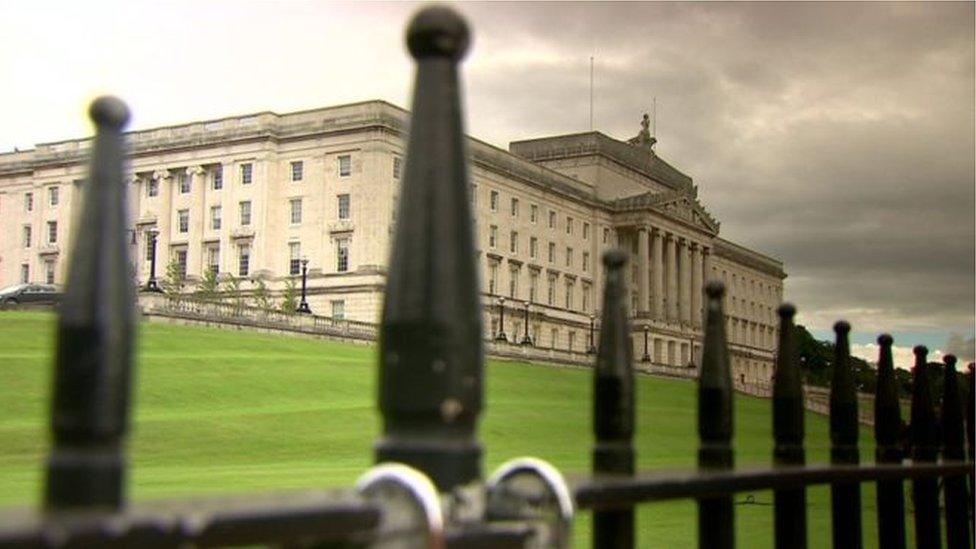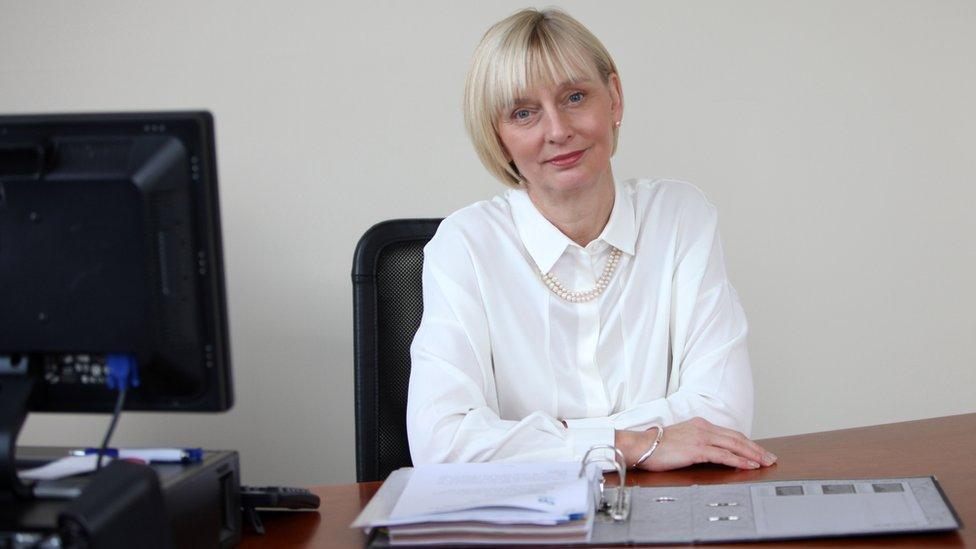Troubles pension not to use Stormont victim definition
- Published

The current definition of a victim, agreed by Stormont in 2006, makes no distinction between paramilitaries hurt staging attacks, and others who were killed or injured.
The government will not refer to the current definition of a victim when it comes to drafting legislation for a Troubles pension, it is understood.
In July, Downing Street said it would set up a pension for Troubles' victims if Stormont is not restored by 21 October.
It is understood officials are working on regulations for a payment system.
There was concern it could apply to injured paramilitaries, but the government said it will not allow that.
The current definition of a victim, agreed in 2006, makes no distinction between paramilitaries hurt staging attacks, and others who were killed or injured.
There have been failed attempts by some politicians at Stormont to change it.
The payment system is expected to be established by May 2020.
In May, Victims' Commissioner Judith Thompson gave advice to the Northern Ireland Office (NIO) about how a pension should be implemented.

Under the Victims and Survivors (NI) Order 2006, a victim is defined as:
Someone who has been physically or psychologically injured as a result of a conflict-related incident;
Someone who provides a substantial amount of care on a regular basis for a person who has been physically or psychologically injured as a result of a conflict-related incident;
Someone who has been bereaved as a result of a conflict-related incident.

Mrs Thompson said in the absence of a change to the 2006 order, she had to act in line with what it states, but she faced a swathe of criticism from some victims' groups who had concerns about her recommendations.
It is understood that on or shortly after 22 October, the government will open a short public consultation on the issue to receive representations on the pension.

Judith Thompson has faced criticism from victims' groups in recent weeks over Troubles pension recommendations
Legislation will then be put to Parliament by 31 January 2020 and the scheme will be introduced fully by the end of May that year.
It is believed applicants to the pension will be asked to set out how they meet the scheme's criteria, as opposed to whether they fit the definition of a victim.
It is not clear what the level of payment will be yet, or how exactly applicants are assessed, but it is thought it will all be addressed in the coming months.
Law changes
The government is legislating for the issue in the absence of devolution at Stormont, but if power sharing returns before 21 October then the laws will not take effect.
Northern Ireland has been without a government since the assembly collapsed in January 2017.
The government will also make regulations allowing for same-sex marriage to be extended to Northern Ireland, if devolution fails to return by 21 October.
The laws are due to be in place by 13 January 2020, which will then allow same-sex couples to give notice of their intent to marry, so it is understood the first same-sex marriages in Northern Ireland could take place as early as February 2020.
- Published30 August 2019
